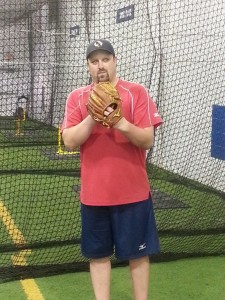
Every professional baseball pitcher wants to throw the ball so the batter can’t hit it.
There are lots of ways to do that.
One way is for the pitcher to throw the ball so that, after it leaves his hand, it “dips down.” That’s known as a curve ball.
Curve balls are tricky to throw. One reason is that it’s hard to grip the smooth, slippery ball.
Last week, a pitcher from the Yankees baseball team was caught using sticky pine tar so he could grip the ball better.
Pitchers aren’t allowed to put anything on the ball.
The pitcher, Michael Pineda, had some pine tar on his neck which he touched with his fingers, to get it on the baseball. The manager of the other team (The Red Sox), noticed the pine tar and told an umpire.
The umpires said Pineda was cheating and they removed him from the game.
“Pine tar helps you get a better grip on the ball and more movement — the flight of the ball in the air — on your pitch,” says Ryan Armstrong, head pitching coach at The Baseball Zone in Mississauga.
“It’s against the rules, so it is cheating,” he said.
Armstrong said pitchers don’t cheat like that, “as often as people might think. I’d say it was a very small minority.”
Over the years some pitchers have tried to scuff up the ball or put something sticky on it to help them throw it better.
One thing that’s unusual in this case, is that the pine tar was quite noticeable on Pineda’s neck. “Most often guys who do something like that are trying to hide it or be as discreet as possible,” said Armstrong.
Pineda said he was sorry he’d cheated, and that he will learn from his mistake. He said he won’t do it again.
Pineda won’t be allowed to play for the next 10 games — he was given a “10-game suspension.”
CURRICULUM CONNECTIONS
By Jonathan Tilly
Writing/Discussion Prompt
Why is it important to play fairly? How should players be punished when they cheat?
Reading Prompt: Responding to and Evaluating Texts
Are you satisfied with the punishment Pineda received? If so, why? If not, what punishment would you have made for Pineda?
Primary
Express personal opinions about ideas presented in texts (OME, Reading: 1.8).
Junior
Make judgements and draw conclusions about the ideas and information in texts and cite stated or implied evidence from the text to support their views (OME, Reading: 1.8).
Intermediate
Evaluate the effectiveness of both simple and complex texts based on evidence from the texts(OME, Reading: 1.8).
Language Feature: Thought Interuption
When a writer interupts their sentence in order to include additional information, they can choose between two different strategies: commas or long dashes. In today’s article, their are examples of both:
The pitcher, Michael Pineda, had some pine tar on his neck which he touched with his fingers, to get it on the baseball.
“Pine tar helps you get a better grip on the ball and more movement — the flight of the ball in the air — on your pitch,” says Ryan Armstrong, head pitching coach at The Baseball Zone in Mississauga.
Using these examples, when might it be more appropriate to use commas instead of long dashes and vice versa?







